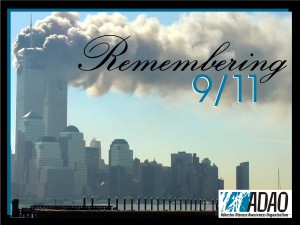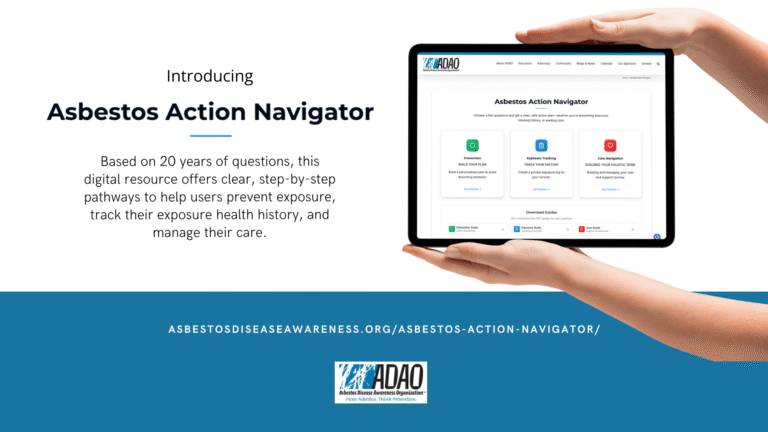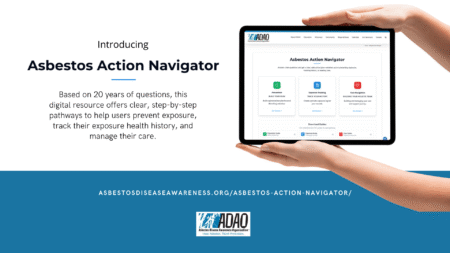On September 11, 2001, when terrorists attacked the World Trade Center and the Pentagon, they killed nearly 3,000 people and left a permanent scar on our nation. Twenty-three years later, the pain remains for those who lost loved ones, but also for the countless first responders who are now suffering from deadly asbestos-related diseases as a result of their selfless service and sacrifice. As we remember this tragic day, we must also raise awareness about the ongoing health crisis affecting the heroes of 9/11.
9/11 First Responders and Asbestos Exposure
Many first responders bravely rushed to Ground Zero to help save lives, unaware or unconcerned with the toxic air they were breathing. They had a job to do and didn’t hesitate to rush towards the danger to save lives. As the World Trade Center collapsed, it released a deadly cloud filled with asbestos, ground glass, lead, and other harmful substances. Asbestos exposure is known to cause mesothelioma, lung cancer, and other severe respiratory diseases with long latency periods. Now, more than two decades later, these health issues are tragically becoming real, manifesting themselves in the very people who risked their lives to protect others.
“On September 11th, I, like every person in New York City, watched in shock and horror as our nation was attacked,” said Dr. Jacqueline Moline, Director of the Northwell Queens WTC Clinical Center, during a 2019 Congressional panel. “Shortly after the towers collapsed, I, along with all physicians in New York City, was called to the hospital as part of the all-hands-on-deck coverage. Tragically, there was little we could do that day. However, based on our knowledge of the potential health effects related to asbestos and the other 150 toxicants individuals were exposed to on 9/11, we knew there was potential for both immediate and long-term disease. Sadly, there are more deaths among responders from WTC-related diseases than those tragically lost on 9/11/01.”
The Toxic Legacy of Asbestos
Asbestos has been recognized as a carcinogen for over a century, yet it was still widely used when the World Trade Center was built. Banned asbestos fireproofing spray was used in the towers, making the exposure after the attack even more deadly.
And now, more than two decades since those attacks and even longer after the world became aware of the overwhelming evidence that links asbestos exposure to diseases like mesothelioma, lung cancer, and asbestosis, asbestos remains legal in the United States to this day. It is one of our country’s most significant public health failures.
According to the Institute for Health Metrics and Evaluation (IHME), over 1.1 million Americans died from asbestos-related diseases between 1991 and 2019. Shockingly, in 2022, one corporation, OxyChem, imported over 300 metric tons of raw chrysotile asbestos. While the dangers are known and alternatives exist, they still choose to put their workers and the communities where they operate at risk. This clear and present toxic danger reinforces the urgent need to finally ban asbestos in the U.S. and prevent further unnecessary deaths.
Protecting Our Heroes: Why We Must Ban Asbestos
Respiratory illnesses plagued first responders shortly after 9/11, and now, as we approach the latency period for many asbestos-related cancers, we are witnessing a steady increase in these diagnoses. Dr. Moline notes, “We are now beginning to see more of the diseases with longer latency periods develop, including mesothelioma.” Asbestos exposure remains a ticking time bomb, and without action, more lives will claimed by asbestos.
The heroes of 9/11 risked their lives to help others. Now, it’s our responsibility to protect them from further harm. As Dr. Raja Flores, Chairman of Thoracic Surgery at Mount Sinai Medical Center, said, “These brave men and women risked their lives to take care of us. Now it’s our turn to take care of them.”
As we commemorate this solemn anniversary, we extend our heartfelt condolences to the families of 9/11 and renew our commitment to education, advocacy, and community support. We will never forget those lost on 9/11 and those battling asbestos-related diseases today as a result of their service to our nation.
Call to Action: Ban Asbestos Now
To honor the sacrifices made by our first responders, we must take definitive steps to ban asbestos in the United States, and we must pass the Alan Reinstein Ban Asbestos Now (ARBAN) Act, the most comprehensive asbestos ban bill put in front of Congress in over 30 years. Asbestos has no place in our homes, schools, or workplaces. The time to act is now.
Linda Reinstein
Social Networks



